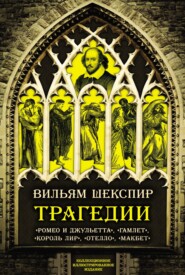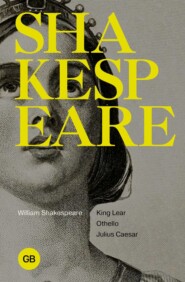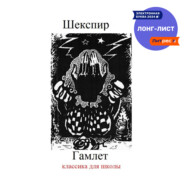По всем вопросам обращайтесь на: info@litportal.ru
(©) 2003-2024.
✖
Beautiful Stories from Shakespeare
Настройки чтения
Размер шрифта
Высота строк
Поля
“I charge you, then, on your allegiance to tell me,” said Don Pedro, falling in with his humor.
“I can be as dumb as a mute,” apologized Benedick to Claudio, “but his Grace commands my speech.” To Don Pedro he said, “Claudio is in love with Hero, Leonato’s short daughter.”
Don Pedro was pleased, for he admired Hero and was fond of Claudio. When Benedick had departed, he said to Claudio, “Be steadfast in your love for Hero, and I will help you to win her. To-night her father gives a masquerade, and I will pretend I am Claudio, and tell her how Claudio loves her, and if she be pleased, I will go to her father and ask his consent to your union.”
Most men like to do their own wooing, but if you fall in love with a Governor’s only daughter, you are fortunate if you can trust a prince to plead for you.
Claudio then was fortunate, but he was unfortunate as well, for he had an enemy who was outwardly a friend. This enemy was Don Pedro’s stepbrother Don John, who was jealous of Claudio because Don Pedro preferred him to Don John.
It was to Don John that Borachio came with the interesting conversation which he had overheard.
“I shall have some fun at that masquerade myself,” said Don John when Borachio ceased speaking.
On the night of the masquerade, Don Pedro, masked and pretending he was Claudio, asked Hero if he might walk with her.
They moved away together, and Don John went up to Claudio and said, “Signor Benedick, I believe?” “The same,” fibbed Claudio.
“I should be much obliged then,” said Don John, “if you would use your influence with my brother to cure him of his love for Hero. She is beneath him in rank.”
“How do you know he loves her?” inquired Claudio.
“I heard him swear his affection,” was the reply, and Borachio chimed in with, “So did I too.”
Claudio was then left to himself, and his thought was that his Prince had betrayed him. “Farewell, Hero,” he muttered; “I was a fool to trust to an agent.”
Meanwhile Beatrice and Benedick (who was masked) were having a brisk exchange of opinions.
“Did Benedick ever make you laugh?” asked she.
“Who is Benedick?” he inquired.
“A Prince’s jester,” replied Beatrice, and she spoke so sharply that “I would not marry her,” he declared afterwards, “if her estate were the Garden of Eden.”
But the principal speaker at the masquerade was neither Beatrice nor Benedick. It was Don Pedro, who carried out his plan to the letter, and brought the light back to Claudio’s face in a twinkling, by appearing before him with Leonato and Hero, and saying, “Claudio, when would you like to go to church?”
“To-morrow,” was the prompt answer. “Time goes on crutches till I marry Hero.”
“Give her a week, my dear son,” said Leonato, and Claudio’s heart thumped with joy.
“And now,” said the amiable Don Pedro, “we must find a wife for Signor Benedick. It is a task for Hercules.”
“I will help you,” said Leonato, “if I have to sit up ten nights.”
Then Hero spoke. “I will do what I can, my lord, to find a good husband for Beatrice.”
Thus, with happy laughter, ended the masquerade which had given Claudio a lesson for nothing.
Borachio cheered up Don John by laying a plan before him with which he was confident he could persuade both Claudio and Don Pedro that Hero was a fickle girl who had two strings to her bow. Don John agreed to this plan of hate.
Don Pedro, on the other hand, had devised a cunning plan of love. “If,” he said to Leonato, “we pretend, when Beatrice is near enough to overhear us, that Benedick is pining for her love, she will pity him, see his good qualities, and love him. And if, when Benedick thinks we don’t know he is listening, we say how sad it is that the beautiful Beatrice should be in love with a heartless scoffer like Benedick, he will certainly be on his knees before her in a week or less.”
So one day, when Benedick was reading in a summer-house, Claudio sat down outside it with Leonato, and said, “Your daughter told me something about a letter she wrote.”
“Letter!” exclaimed Leonato. “She will get up twenty times in the night and write goodness knows what. But once Hero peeped, and saw the words ‘Benedick and Beatrice’ on the sheet, and then Beatrice tore it up.”
“Hero told me,” said Claudio, “that she cried, ‘O sweet Benedick!’”
Benedick was touched to the core by this improbable story, which he was vain enough to believe. “She is fair and good,” he said to himself. “I must not seem proud. I feel that I love her. People will laugh, of course; but their paper bullets will do me no harm.”
At this moment Beatrice came to the summerhouse, and said, “Against my will, I have come to tell you that dinner is ready.”
“Fair Beatrice, I thank you,” said Benedick.
“I took no more pains to come than you take pains to thank me,” was the rejoinder, intended to freeze him.
But it did not freeze him. It warmed him. The meaning he squeezed out of her rude speech was that she was delighted to come to him.
Hero, who had undertaken the task of melting the heart of Beatrice, took no trouble to seek an occasion. She simply said to her maid Margaret one day, “Run into the parlor and whisper to Beatrice that Ursula and I are talking about her in the orchard.”
Having said this, she felt as sure that Beatrice would overhear what was meant for her ears as if she had made an appointment with her cousin.
In the orchard was a bower, screened from the sun by honeysuckles, and Beatrice entered it a few minutes after Margaret had gone on her errand.
“But are you sure,” asked Ursula, who was one of Hero’s attendants, “that Benedick loves Beatrice so devotedly?”
“So say the Prince and my betrothed,” replied Hero, “and they wished me to tell her, but I said, ‘No! Let Benedick get over it.’”
“Why did you say that?”
“Because Beatrice is unbearably proud. Her eyes sparkle with disdain and scorn. She is too conceited to love. I should not like to see her making game of poor Benedick’s love. I would rather see Benedick waste away like a covered fire.”
“I don’t agree with you,” said Ursula. “I think your cousin is too clear-sighted not to see the merits of Benedick.” “He is the one man in Italy, except Claudio,” said Hero.
The talkers then left the orchard, and Beatrice, excited and tender, stepped out of the summer-house, saying to herself, “Poor dear Benedick, be true to me, and your love shall tame this wild heart of mine.”
We now return to the plan of hate.
The night before the day fixed for Claudio’s wedding, Don John entered a room in which Don Pedro and Claudio were conversing, and asked Claudio if he intended to be married to-morrow.
“You know he does!” said Don Pedro.
“He may know differently,” said Don John, “when he has seen what I will show him if he will follow me.”
They followed him into the garden; and they saw a lady leaning out of Hero’s window talking love to Borachio.
Claudio thought the lady was Hero, and said, “I will shame her for it to-morrow!” Don Pedro thought she was Hero, too; but she was not Hero; she was Margaret.
Don John chuckled noiselessly when Claudio and Don Pedro quitted the garden; he gave Borachio a purse containing a thousand ducats.

















